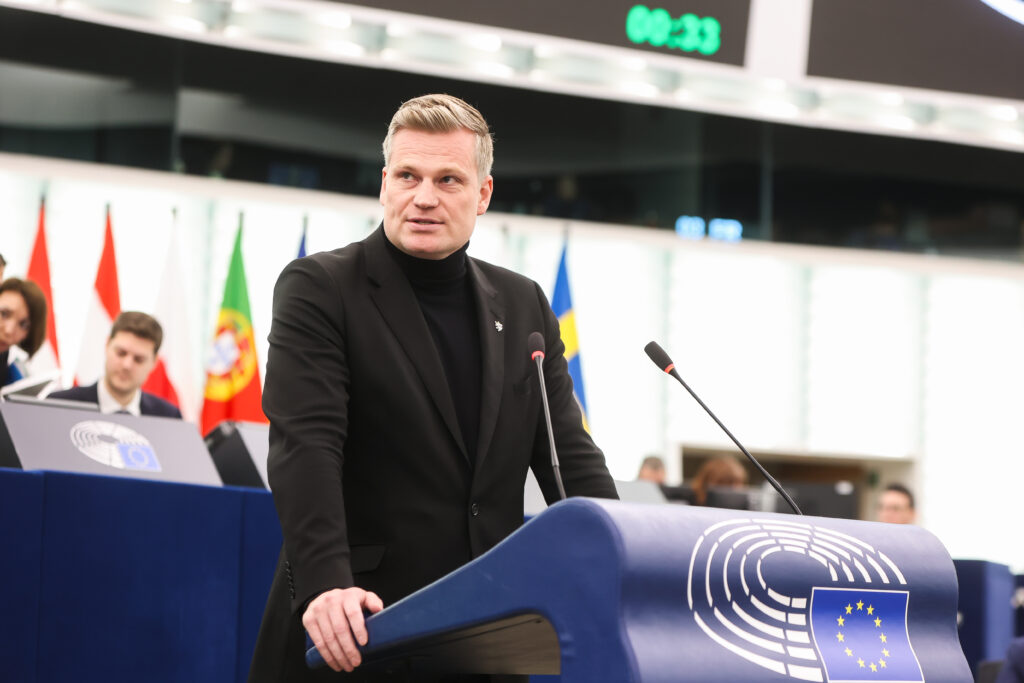The desparate attempt by climate change deniers to sully climate scientists returns today with the release of 5,000 emails stolen back in 2009 during the original “Climategate” hacking of the University of East Anglia’s Climatic Research Unit email servers.
Other than a great attempt at ruining another Thanksgiving holiday for American scientists, the bottom line conclusions on this story are identical to the 2009 release:
1. There is nothing in these emails that in any way disproves the enormous body of peer-reviewed climate science. As even the Koch-funded BEST study recently showed, climate change is real, global temperatures are rising and human activities are responsible.
2. The ‘new’ emails appear to come from the same batch stolen from the University of East Anglia in 2009. The denialosphere blogs are trying to frame it as ‘Climategate 2’. Cherry-picked quotes from the emails are once again being taken out of context by skeptic bloggers and irresponsible media like the Daily Mail in a last ditch attempt to smear climate science, and derail COP17 talks in Durban.
3. It’s not a coincidence that this new release of hacked emails comes just days before the Durban COP17 climate conference, much as the first release from the hacked files came just before Copenhagen. When the world’s governments start to make progress toward climate action, the polluters panic and resort to desparate measures.
4. Remember that this was an illegal hacking of emails, and this second batch represents a continued breach of privacy of these scientists whose personal emails were released to the public. The UK police investigation into the hacking is still ongoing, and this new episode should compel them to redouble their efforts to find out who these criminal hackers are, and bring them to justice.
Update: Richard Black at the BBC points to the real scandal that needs further investigation – why the UK police have done such an astonishly poor job investigating this criminal hacking, as evidenced by their tiny expenditures to date. From Climate Emails, Storm or Yawn?:
I have been passed information stemming from an FoI request to Norfolk Police showing that over the past 12 months, they have spent precisely £5,649.09 [US$8843.64] on the investigation.All of that was disbursed back in February; and all but £80.05 went on “invoices for work in the last six months”.Of all the figures surrounding the current story, that is perhaps the one that most merits further interrogation.
“Two years ago, emails were released and the American people were lied to about their content. Now, we are expected to be gullible enough to believe the original liars a second time.”
Gavin at RealClimate.org is calling this “Two year old turkey” and has this to say:
A couple of differences in this go around are worth noting: the hacker was much more careful to cover their tracks in the zip file they produced – all the file dates are artificially set to Jan 1 2011 for instance, and they didn’t bother to hack into the RealClimate server this time either. Hopefully they have left some trails that the police can trace a little more successfully than they’ve been able to thus far from the previous release.But the timing of this release is strange. Presumably it is related to the upcoming Durban talks, but it really doesn’t look like there is anything worth derailing there at all. Indeed, this might even increase interest! A second release would have been far more effective a few weeks after the first – before the inquiries and while people still had genuine questions. Now, it just seems a little forced, and perhaps a symptom of the hacker’s frustration that nothing much has come of it all and that the media and conversation has moved on.
Update: Richard Black, who first reported the new batch of emails, follows up with a great post on the BBC, with this key excerpt:
Robust debate? You bet.A desire to prevent material being released through Freedom of Information (FoI) requests? Absolutely – as acknowleged, apologised for and dealt with during the 2010 inquiries into the incidents of 2009.But a concerted plot to deceive the world?I’ve yet to find it; and, judging by what he/she has highlighted, so has FOIA 2011, despite having had the unique opportunity to scour the emails for two years.
Media Matters has an excellent post that every journalist covering this story should read: Memo to Media, Research First, Then Report on Climate Emails.
Update: And now Media Matters has an excellent post showing that several journalists are shirking their responsibility: Media Already Botching Reports On Hacked Climate Emails, calling out Juliet Eilperin at the Washington Post and Raphael Satter of the Associated Press for shoddy reporting. Let’s hope other journalists are paying attention.
Brad Johnson at ThinkProgress has another must-read: Climategate 2.0: Have Journalists Learned Their Lesson? Update: No.
Kate Sheppard at Mother Jones’ Blue Marble weighs in: Climategate…Again? with this observation:
as with the first round, a lot of what is portrayed as sinister plotting or subterfuge among scientists is really just how science works—people disagree, they criticize each other’s work, and they sometimes aren’t very nice. And, just like in the last round, some of them show scientists discussing how to avoid turning over their emails to skeptics that would use them to bash the science. I’m hoping the irony of that isn’t lost on anyone.…I’d hesitate to call attention to a bunch of stolen, out-of-context emails at all, except for the fact that part of the reason that Climategate 1.0 was blown so far out of proportion is that most people ignored it for so long and let the denial crowd frame the conversation. By the time reasonable people caught up, it was already out of control. Journalists basically ran with the skeptic’s talking points, and despite numerous investigations and exonerations, the incident remained a stalking horse for the global warming denial crowd.
Union of Concerned Scientists issued a fantastic response, including this great quote from Francesca Grifo, senior scientist and director of the Union of Concerned Scientists’ (UCS) Scientific Integrity Program:
“These leftover emails should be met with a collective yawn. It’s time to condemn the real perpetrators in this story: the hackers who stole and released university property. The hackers and their allies are resorting to desperate measures to distract the public when our focus should be on how to respond to climate change.”
The University of East Anglia reaction, as seen on the Washington Post:
“These emails have the appearance of having been held back after the theft of data and emails in 2009 to be released at a time designed to cause maximum disruption to the imminent international climate talks. This appears to be a carefully-timed attempt to reignite controversy over the science behind climate change when that science has been vindicated by three separate independent inquiries and number of studies – including, most recently, the Berkeley Earth Surface Temperature group.”“As in 2009, extracts from emails have been taken completely out of context,” the statement added. “Following the previous release of emails, scientists highlighted by the controversy have been vindicated by independent review, and claims that their science cannot or should not be trusted are entirely unsupported. They, the University and the wider research community have stood by the science throughout, and continue to do so.”
Skeptical Science has the rundown of the nine independent investigations which cleared the climate scientists:
- In February 2010, the Pennsylvania State University released an Inquiry Report that investigated any ‘Climategate’ emails involving Dr Michael Mann, a Professor of Penn State’s Department of Meteorology. They found that “there exists no credible evidence that Dr. Mann had or has ever engaged in, or participated in, directly or indirectly, any actions with an intent to suppress or to falsify data”. On “Mike’s Nature trick”, they concluded “The so-called “trick”1 was nothing more than a statistical method used to bring two or more different kinds of data sets together in a legitimate fashion by a technique that has been reviewed by a broad array of peers in the field.”
- In March 2010, the UK government’s House of Commons Science and Technology Committeepublished a report finding that the criticisms of the Climate Research Unit (CRU) were misplaced and that CRU’s “Professor Jones’s actions were in line with common practice in the climate science community”.
- In April 2010, the University of East Anglia set up an international Scientific Assessment Panel, in consultation with the Royal Society and chaired by Professor Ron Oxburgh. The Report of the International Panel assessed the integrity of the research published by the CRU and found “no evidence of any deliberate scientific malpractice in any of the work of the Climatic Research Unit”.
- In June 2010, the Pennsylvania State University published their Final Investigation Report, determining “there is no substance to the allegation against Dr. Michael E. Mann”.
- In July 2010, the University of East Anglia published the Independent Climate Change Email Review report. They examined the emails to assess whether manipulation or suppression of data occurred and concluded that “The scientists’ rigor and honesty are not in doubt”.
- In July 2010, the US Environmental Protection Agency investigated the emails and “found this was simply a candid discussion of scientists working through issues that arise in compiling and presenting large complex data sets.”
- In September 2010, the UK Government responded to the House of Commons Science and Technology Committee report, chaired by Sir Muir Russell. On the issue of releasing data, they found ”In the instance of the CRU, the scientists were not legally allowed to give out the data”. On the issue of attempting to corrupt the peer-review process, they found ”The evidence that we have seen does not suggest that Professor Jones was trying to subvert the peer review process. Academics should not be criticised for making informal comments on academic papers”.
- In February 2011, the Department of Commerce Inspector General conducted an independent review of the emails and found “no evidence in the CRU emails that NOAA inappropriately manipulated data”.
- In August 2011, the National Science Foundation concluded “Finding no research misconduct or other matter raised by the various regulations and laws discussed above, this case is closed”.
Image credit: Cory Thoman / Shutterstock.
Subscribe to our newsletter
Stay up to date with DeSmog news and alerts







